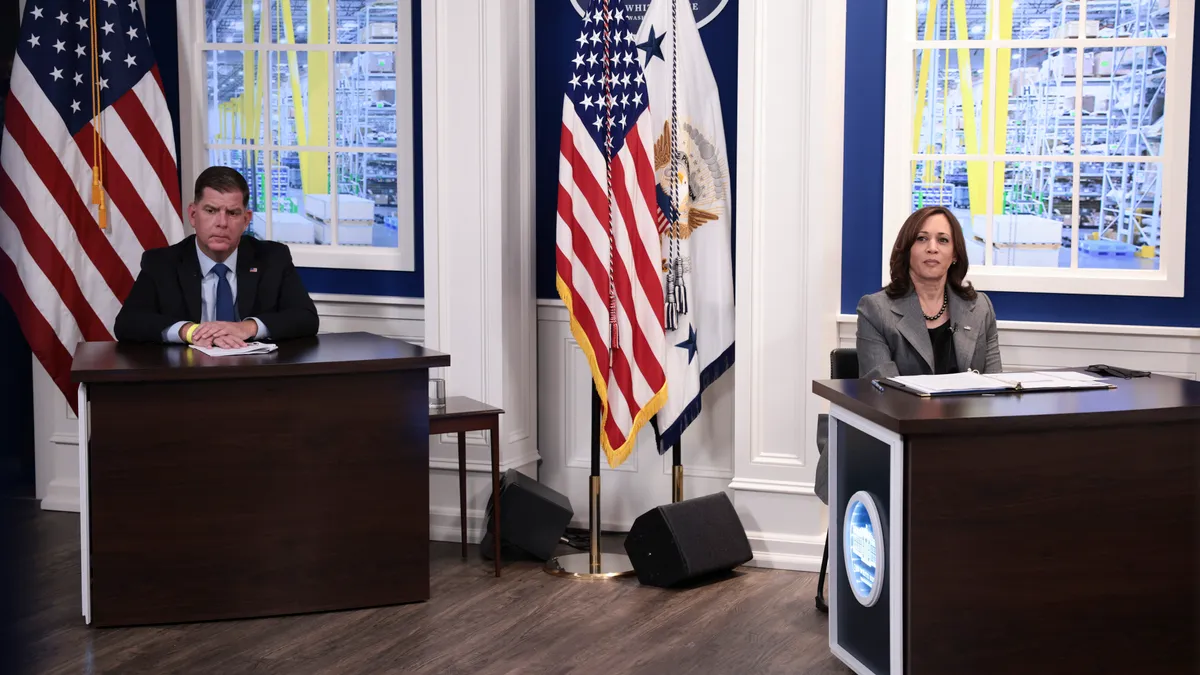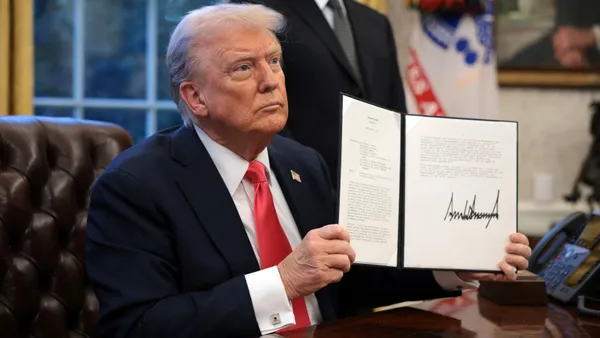Dive Brief:
- Vice President Kamala Harris and Labor Secretary Marty Walsh announced new guidelines last week to encourage federal workers to join unions.
- Federal agencies will be required to inform new hires and job applicants about unions during the hiring and onboarding process. Unions may also sit in during new employee training sessions, according to a memo from the United States Office of Personnel Management (OPM).
- Government employers will also need to communicate with current workers throughout the year about their collective bargaining rights and how to contact their respective unions, the memo said. The guidelines do not appear to extend to government contractors.
Dive Insight:
Harris and Walsh, respective chair and vice-chair of the Task Force on Worker Organizing and Empowerment, announced the guidelines during a roundtable session on Oct. 20.
Over 1.2 million federal employees, or approximately 57% of the non-postal executive branch workforce, are represented by labor unions, according to the memo. The OPM periodically receives inquiries from federal employees who are unaware they are represented by a labor union or seeking assistance in contacting a union representative in their agency. For this reason, "OPM believes that actions can be taken in the hiring and on-boarding process for job applicants," according to the memo.
The percent of union members among all U.S. employees increased from 2019 to 2020, reaching 10.8% from 10.3%. But union membership has been decreasing for nearly 40 years, down from its peak of 20.1% membership in 1983, according to data from the U.S. Bureau of Labor Statistics.
The president of the American Federation of State, County and Municipal Employees (AFSCME) praised the new guidelines in a statement, pointing to the Biden administration’s pro-union stance.
"By making it an official policy of the federal government to ensure its workers are aware of their rights, the Biden-Harris administration is setting an important example for other employers in both the public and private sector," said Lee Saunders, president of the AFSCME.
Biden’s position on unions is a clear turnaround from the views of former President Donald Trump’s administration.
"This is the most pro-worker, pro-union administration of our lifetimes," said Walsh, a former construction union leader, during the roundtable. "Unions are good for workers, they're good for our communities, they’re good for our economy, and they're certainly good for our country. Better pay and benefits, better working conditions, protect smaller wage earners and is an opportunity to get into the middle class."
House Democrats approved the PRO Act in March, which would provide protections for workers trying to organize. But the bill has since stalled in the Senate, given a lack of Republican support for the legislation.
The bill prevents employers from holding mandatory meetings for the purpose of counteracting labor organization, and would strengthen the legal right of employees to join a labor union.
Critics of the bill argue the Pro Act would undermine worker rights, entangle employers in labor disputes, force workers to pay union dues despite their wishes and ultimately disrupt the economy.















